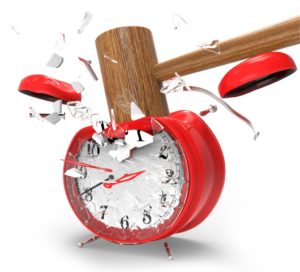 It’s been about 15 years now since we had our last true recession. Last year nearly everyone, including yours truly, expected a recession to take hold by spring of this year. As it goes with most things with the stock market, when most people expect something, it usually does the opposite. Now, the debate is, has the economy shown resilience to avoid a recession, or are the broken clock calls for one still going to be correct? https://www.investopedia.com/terms/r/recession.asp
It’s been about 15 years now since we had our last true recession. Last year nearly everyone, including yours truly, expected a recession to take hold by spring of this year. As it goes with most things with the stock market, when most people expect something, it usually does the opposite. Now, the debate is, has the economy shown resilience to avoid a recession, or are the broken clock calls for one still going to be correct? https://www.investopedia.com/terms/r/recession.asp
To this day we are still adjusting for the aftereffects of the covid pandemic and the record-breaking stimulative measures the government took to keep us from falling into the abyss as the economy locked down. The helicopter cash that was dropped into bank accounts, the “free loans” that were directed at businesses to keep afloat, the pause on paying school loans, and the sub 3% mortgages all fueled the economy into overdrive. With that came inflation levels we haven’t seen in over 40 years that quickly squeezed incomes, especially on the lower end of the scale.
In response the central banks around the world embarked on one of the fastest increases in interest rates in attempts to slow inflation back down to more reasonable levels. The initial squeeze on incomes as inflation rose precipitously last year caused a very short-lived recession, but the combination of excess reserves in people’s bank account, wage increases, and increased government spending quickly avoided a prolonged recession.
Now, as things continue to normalize, and the excess reserves get spent down, inflation is trending in the right direction. Did the central banks just achieve “immaculate disinflation”? Meaning, they cured the inflation problem without causing economic pain? That’s the question. It could be a “goldilocks” scenario where everything is just right, and economic growth continues. If the labor market comes into balance without massive layoffs all while inflation continues to slow, then central banks will have pulled off one of the greatest feats of our lifetime.
The drumbeat of recession calls from last year and early this year have mostly subsided, and holding a recession just ahead view is now easily mocked. Ironically, the point at the start of the article that when most people expect something, it does the opposite, is now again favoring the odds of a recession.
But it’s not just the contrarian status that makes a recession still likely. The lag effects of raising interest rates on the economy, on average, takes 19 months before a recession starts. We are currently in the 16th month. We are more of a service economy than in the past, which doesn’t rely on interest rates nearly as much as a manufacturing or industrial-based economy. So, it is possible it takes longer than average for a recession to arrive.
We are already seeing warning signs in the industrial segments of the economy. They have been in a contractionary phase now for months. Companies like Yellow Freight are nearing bankruptcy as they have punted on paying out $50M in health and welfare and pension funds for the month of June and July. Bankruptcies and 90 day late payments on debt are sharply on the rise. Job openings are falling, and retail sales are falling below expectations. https://www.bloomberg.com/news/articles/2023-07-18/teamsters-plan-22-000-worker-strike-at-trucking-firm-yellow#xj4y7vzkg
It’s hard to imagine how new home and auto buyers can afford their payments with interest rates above 7% while at the same time prices remain highly elevated compared to pre-covid. These pinches are either starting to bring the economy into a better equilibrium on the labor and inflation fronts, or it’s the initial start of a recession that is well on pace based on historical standards.
If the standard cycle applies this time around, we should expect it to start around the end of the year. It’s not uncommon for people to believe one can be avoided, just as people dismissed the sub-prime mortgage crisis during the summer of 2008. We all know what happened next. Nobody can predict exactly when, how hard, or how long a recession lasts, but I would remain cautious on the road just ahead. Wave of bankruptcies?
